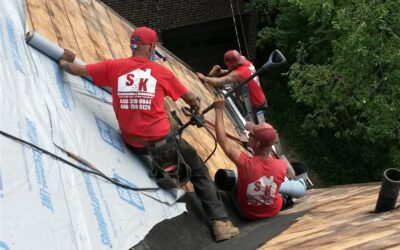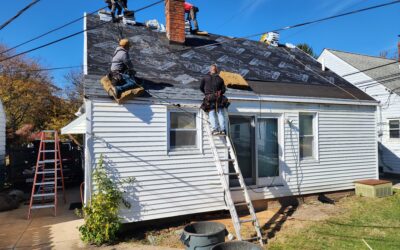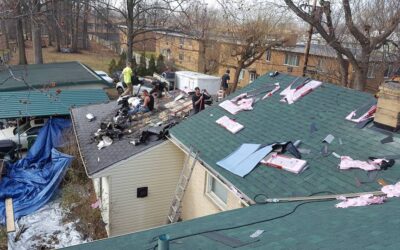Understanding the 3/12 Roof Pitch: Pros, Cons, and Best Practices
Introduction
Roof pitch is a critical aspect of a building’s design, influencing aesthetics, functionality, and durability. A 3/12 roof pitch is a low-slope roof, meaning that for every 12 inches of horizontal run, the roof rises only 3 inches. While this pitch offers unique advantages, such as cost efficiency and modern architectural appeal, it also presents challenges related to drainage, material selection, and maintenance.
In this comprehensive guide, we will discuss the 3/12 roof pitch, its benefits and drawbacks, the best roofing materials for low-slope roofs, and essential construction considerations for ensuring long-term durability and performance.
What is a 3/12 Roof Pitch?
A 3/12 roof pitch falls under the category of low-slope roofs. Although it is not completely flat, it has a shallower incline compared to steeper pitches like 8/12 or 12/12.
Key Characteristics:
- Low slope, which means water drainage is slower than steeper roofs.
- Requires special roofing materials to prevent leaks.
- More walkable and accessible for maintenance.
- Common in modern and ranch-style homes, as well as some commercial buildings.
Advantages of a 3/12 Roof Pitch
Despite its low slope, a 3/12 roof pitch offers several benefits that make it a practical choice for certain architectural styles and climates.
1. Cost-Effective Construction
A 3/12 pitch roof requires less material than steeper slopes, leading to lower overall costs. Additionally, the simpler design makes installation quicker and easier, reducing labor expenses.
2. Modern and Sleek Aesthetic Appeal
Low-pitch roofs contribute to a modern, contemporary architectural style. Many ranch-style, mid-century modern, and minimalist designs incorporate 3/12 pitched roofs to achieve a clean and streamlined appearance.
3. Easier Accessibility and Maintenance
A shallower slope makes it safer and easier for homeowners or contractors to perform maintenance, clean gutters, and conduct inspections without the need for extensive safety equipment.
4. Energy Efficiency Potential
Low-slope roofs are ideal for solar panel installations, as they allow for a wider range of tilt adjustments to optimize sun exposure. Additionally, they provide more consistent attic insulation, reducing energy costs in some cases.
Challenges of a 3/12 Roof Pitch
While a 3/12 roof pitch has its advantages, it also presents some unique challenges that require special consideration.
1. Slower Water Drainage and Potential for Leaks
One of the biggest drawbacks of a low-slope roof is that water drains more slowly than on steeper pitches. This can lead to standing water, which increases the risk of leaks, mold growth, and structural damage if not properly managed.
2. Limited Roofing Material Options
Unlike steep roofs that can accommodate a variety of materials, a 3/12 pitch requires specialized roofing materials that offer enhanced waterproofing. Some materials, like traditional shingles, may not perform well without additional precautions.
3. Increased Snow and Debris Accumulation
Because the roof slope is shallow, snow, leaves, and debris do not slide off as easily as they would on a steeper pitch. This requires more frequent maintenance to prevent roof damage.
4. Shorter Lifespan if Not Properly Installed
Improper installation of a low-slope roof can lead to water pooling, material deterioration, and costly repairs. Professional expertise is essential to ensure the roofing system functions effectively.
Best Roofing Materials for a 3/12 Roof Pitch
Due to its low slope, a 3/12 roof pitch requires materials that provide superior waterproofing and durability. Here are the best options:
1. Metal Roofing (Best for Longevity)
- Highly durable and weather-resistant
- Provides excellent water runoff despite the low pitch
- Available in standing seam and corrugated styles
- Lifespan of 40-70 years
2. Modified Bitumen Roofing (Best for Flat & Low-Slope Roofs)
- Ideal for low-pitch applications
- Composed of asphalt and rubber modifiers for enhanced flexibility
- Excellent resistance to leaks and standing water
- Lifespan of 20-30 years
3. EPDM (Rubber) Roofing (Best for Waterproofing)
- Synthetic rubber membrane used in low-slope commercial and residential roofs
- Highly resistant to UV damage and extreme temperatures
- Minimal seams, reducing leak risks
- Lifespan of 25-30 years
4. TPO (Thermoplastic Polyolefin) Roofing (Best for Energy Efficiency)
- Reflective surface that reduces heat absorption
- Seam-welded for maximum waterproofing
- Resistant to mold, dirt, and debris
- Lifespan of 20-30 years
5. Asphalt Shingles with Special Installation (Cost-Effective Option)
- Can be used if installed with waterproof underlayment
- Budget-friendly and widely available
- Requires additional flashing and sealants to prevent leaks
- Lifespan of 15-25 years
Essential Construction Considerations for a 3/12 Roof Pitch
To ensure durability and longevity, proper construction techniques must be followed for a 3/12 pitch roof.
1. Proper Drainage Design
- Install oversized gutters to handle water runoff efficiently.
- Ensure roof sections are designed to minimize water pooling.
2. Use High-Quality Waterproofing Materials
- Apply peel-and-stick waterproof membranes beneath roofing materials.
- Use seam-sealed roofing materials to prevent leaks.
3. Regular Maintenance and Inspections
- Check for water pooling, clogged gutters, and flashing deterioration.
- Remove leaves and debris after heavy storms.
4. Hire Experienced Roofing Professionals
Since a 3/12 pitch roof requires specialized installation, hiring experienced contractors ensures the roof is built to last and prevents costly future repairs.
Cost Considerations for a 3/12 Roof Pitch
The total cost of a 3/12 roof pitch varies based on materials, labor, and location. Here’s a general breakdown:
| Factor | Estimated Cost Impact |
|---|---|
| Materials | Varies based on roofing type (metal, modified bitumen, TPO, etc.) |
| Labor | Lower than steep roofs due to easier installation |
| Maintenance | Requires periodic inspections to prevent leaks |
| Drainage System | May need larger gutters and better flashing |
Average Cost Estimates:
- Asphalt shingles: $3.00 – $5.00 per square foot
- Metal roofing: $6.00 – $12.00 per square foot
- TPO roofing: $5.50 – $9.50 per square foot
- EPDM rubber roofing: $4.00 – $8.00 per square foot
Conclusion
A 3/12 roof pitch is an excellent choice for modern homes and commercial buildings, offering cost efficiency, accessibility, and a sleek aesthetic. However, its low slope presents challenges related to water drainage, material selection, and maintenance. By using the right roofing materials, proper waterproofing techniques, and hiring skilled professionals, homeowners can maximize the longevity and performance of their 3/12 pitch roof.
At S&K Construction And Remodeling LLC, we specialize in low-slope roofing solutions in Youngstown, Ohio, and surrounding areas. If you’re considering a 3/12 roof pitch, contact us today for expert installation and maintenance services!
 (440) 307-2060
(440) 307-2060


